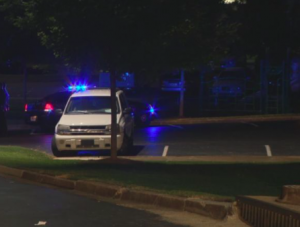
(CBS 46)
Could this unconscionable Scottsdale apartment shooting have been prevented, and are justice and compensation available to Miss Harris and her family?
Security measures are in question after 10-year-old Shamaria Harris was shot while “asleep in her bed at the Oak Forest apartments” Wednesday night, August 15, 2018, according to FOX 5. Investigators told media “an argument broke out in the parking lot and escalated to shots being fired.”
CBS 46 reports, a stray bullet pierced [Miss Harris’] bedroom, striking her in the arm as she slept. Police are apparently still searching for suspects.
Was negligent security a factor in the shooting of this young girl? Read Our Legal Take below to find out if Miss Harris may have legal avenues for justice and claims for substantial compensation in Georgia.
Our Legal Take
Apartment residents and guests have a right to feel safe and secure while on the premises. The Murray Law Firm questions the level of security provided at the apartment complex and whether this unconscionable shooting may have been prevented.
- How did the gunman gain entry to the complex? What access controls and security measures, such as gated entry, bright lighting, surveillance cameras, and security patrols, were in place to deter crime and protect Miss Harris at the time of the shooting?
By law, property owners in Georgia are required to protect all those legally on the premises from any foreseeable harm. Should the facts of this matter reveal that the apartment complex owner or management failed to provide adequate security, Shamaria Harris and her family may seek justice and elect to pursue legal claims for her injuries.
The Murray Law Firm has recovered millions of dollars for victims of unsafe properties in Georgia, and recently obtained a $29.25 million dollar verdict in Georgia.
We represent our Clients on a contingency agreement, which generally means that no fees or payments are owed until and unless we recover. Anyone seeking further information or legal representation is encouraged to contact us via e-mail (click here) or by telephone at CALL NOW: 404.842.1600. Consultations are free and confidential.
CALL NOW: 404.842.1600
 Georgia Legal Report
Georgia Legal Report


